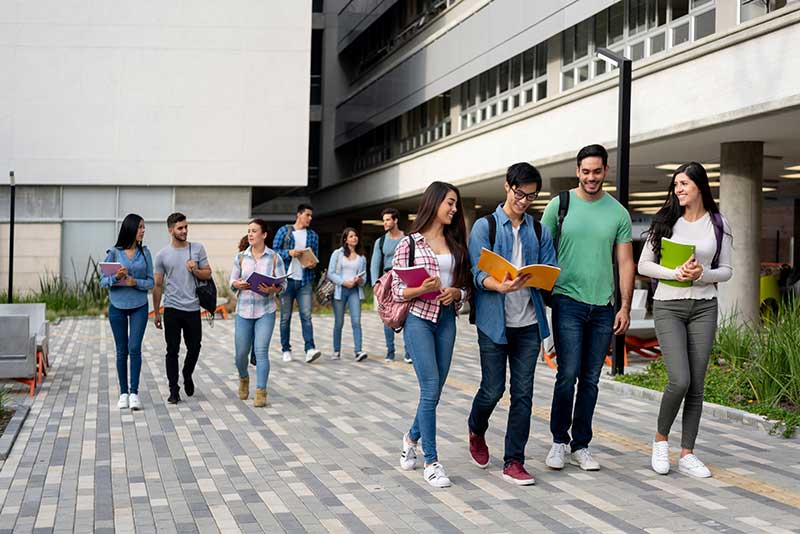Top 10 Back-to-School Safety Tips for Higher Education
Sign up to receive our blog posts in your inbox.

As the beginning of the new school year fast approaches, it is essential for parents, students, administrators, and staff to come together and review the information below. Fostering awareness, and prioritizing prevention can have tremendous impacts and life-changing outcomes. It’s a great time to unite, get reacquainted with safety and prevention, and promote a positive, inclusive academic year.
1. Understand Campus Safety & Security Services
Be familiar with the security and safety services on campus. Know who to call in the event of an emergency, and how to put security services such as escorts or shuttle services to use as needed.
2. Secure Living Spaces
Take ownership for your personal space. Keep doors and windows secured. Never allow strangers or unauthorized visitors into the building or your room, use approved entrances and exits for routine travel and emergency exits for emergencies, and never prop open doors.
3. Use Campus Resources
Know what resources are available to you on campus and in the surrounding community; including: wellness programs, counseling, mental health services, academic support, emergency notification systems, and safety apps. (P.S. Downloading and using the school’s safety app and/or emergency notification system is an absolute must to stay informed and enhance your personal safety).
4. Be Cautious Online
Be careful as to what you share online – particularly on social media. Avoid sharing your location details when that can potentially put you at risk. Be mindful of cyber threats, online bullying, and inappropriate solicitations online.
5. Be Aware of Your Surroundings
Get to know the safest routes around campus, vary your routes, and stick to well-lit areas and populated parts of campus. This is especially true when walking alone or at night. Maintain an awareness of the people and situations around you. Know what to do if they’re suspicious or something just doesn’t feel right.
6. Practice Responsible Drinking
If you’re of legal drinking age, and choose to drink, do so responsibly. Don’t provide alcohol to minors, follow your campus alcohol policies, and use a designated driver or rideshare. Be aware of the signs of intoxication or alcohol poisoning in others, and know what to do to get them help.
7. Have an Emergency Plan
Obtain and become familiar with your campus emergency procedures. If you’re not sure where to find a copy of them, ask public safety and check your campus website. Know what to do in the event of an emergency, take exercises seriously, and maintain vigilant awareness.
8. Secure Personal Belongings
College textbooks are expensive, and so are the various electronic devices we use more and more every day on campus. These make great targets for thieves, and this can be especially true within residence halls and communal living areas.
9. Use Safe Transportation
Have a personal transportation plan that consists of multiple options for a ride if need be. Whether that’s the campus shuttle service, several rideshare options, a taxi, or a trusted sober friend, know what to do to get home safely. Share your location with a friend, and use the buddy system to let others know where you’re going and when you’ve arrived safely.
10. Report Suspicious Activity
If you see something, say something! This cannot be understated. We all have a responsibility to do our part to help safeguard our communities. Get to know what resources exist to make reports – to include anonymous reports – and know who to call at campus public safety or local law enforcement if such a system doesn’t exist.
Take a look at these additional resources to help guide you through this conversation and we’re always here to help.
Resources:
- Active Assailant Preparedness in Higher Education Webinar
- Active Assailant Preparedness Guide
- Back-to-School Safety Segment with CNN
- Fox 29 Back To School
Please reach out with any questions and or comments, Frank.spano@aus.com
Visit us at https://www.aus.com/industry-expertise/education









